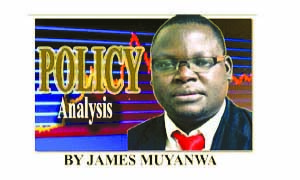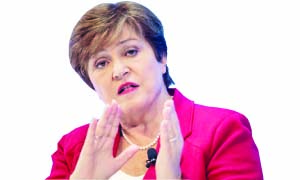On June 22, we featured an article on the roadmap for Zambia’s International Monetary Fund (IMF) bailout application and focused on some of the ‘bridges’ which were yet to be crossed.
This article, therefore, focuses on that topic after the assurances from Zambia’s international creditors that they would support the country’s debt restructuring.
For emphasis, this forum has featured various articles indicating that the issue of the proposed IMF financial bailout to Zambia has been with us for some time now.
The Patriotic Front (PF) government administration, particularly under former President Edgar Lungu, vainly jostled for the programme up to the time of its exit.
Like I indicated in June, it must, therefore, be trying to the current government administration to hear some insinuations, mainly from past leaders, that Zambia does not need an IMF programme.
What has changed?
Indeed, the country is well past that stage of the debate on ‘do-we-or-do-we not-need-the-IMF question, as indicated last time!
Government officials, past and present, economic experts and others have on many occasions explained why the country needs the IMF programme.
In its little way, this forum has been at hand to feature those views on that established matter, insisting that Zambia needs the support of the fund.
Back to the roadmap, there are some finalisation steps, mainly related to the debt restructuring process, that still need to be undertaken before the IMF management and board consider and approve the programme.
What is noticeably reassuring is that, so far, Zambia seems to have the goodwill and endorsement of the IMF, the World Bank and other critical international organisations on the matter.
Sentiments from IMF managing director Kristalina Georgieva and the World Bank officials are always uplifting to all those looking forward to the fund’s support.
Last time, I indicated that it seemed the only thing then standing between the country and the IMF support was the decision of the Official Creditor Committee (OCC) under the G20 Common Framework for Debt Treatment.
That was because, as the ministry indicated, the consideration of Zambia’s application for an Extended Credit Facility (ECF) by the IMF board and the country’s debt restructuring process, are interrelated.
Getting the IMF board approval is centred on getting financing assurances from the OCC.
Zambia is now, however, past that as positive sentiments have come out of the OCC with assurance that the members would support the debt restructuring exercise.
Last time, I reported that the ministry of Finance had stated that so far the whole process had been systematic and entailed substantial traction as the government moved towards attainment of credible assurances.
While some Zambians have elected to remain skeptical about the importance of the whole programme, international organisations like the IMF, the World Bank and others are enthralled for Zambia as was evidenced by their reactions to the outcome of the creditors’ meeting.
For instance, Ms Georgieva said she was ‘very pleased to welcome the statement issued on July 30 by the OCC for Zambia.’
“The support from the Official Creditor Committee for Zambia’s envisaged IMF-supported programme, together with its commitment to negotiate debt restructuring terms, accordingly, provides the IMF with official financing assurances,” she says.
She states that she strongly endorses the call by the OCC for private creditors and other official bilateral creditors to commit to comparable debt treatments.
“The delivery of these financing assurances will enable the IMF Executive Board to consider approval of a fund-supported programme for Zambia and unlock the much needed financing from Zambia’s development partners,” Ms Georgieva says.
On December 3, 2021, IMF reached the staff-level agreement with the Zambian government on a new arrangement under the ECF for 2022-2025 involving about Special Drawing Rights – SDR 980 million or about $1.3 billion.
On the auspicious Sunday, the World Bank urged the creditor committee to reach a quick agreement on the specifics of deep debt relief for Zambia that is consistent with the upper-credit-tranche programme of the IMF and the joint World Bank-IMF Debt Sustainability Assessment.
According to a statement by World Bank Group president David Malpass, the bank welcomed the announcement which it described as an important step towards reducing Zambia’s debt.
“Significant debt relief is needed to secure long-term debt sustainability and attract the investment necessary for growth and poverty reduction. I urge official bilateral and private sector creditors to participate on comparable terms, granting Zambia a substantial net-present-value reduction in debt,” Mr Malpass says.
The World Bank is working closely with the IMF, the G20, and the creditor committee to support the common framework process as a path to long-term debt sustainability.
On behalf of Zambia, Finance and National Planning minister Situmbeko Musokotwane welcomed the decision of the OCC saying that:
“We are grateful to all our official creditors for considering Zambia’s request for debt restructuring. We also reiterate that Zambia remains committed to implementing the much-needed economic reforms, being transparent about our debt and ensuring fair and equitable treatment of our creditors.”
As one of the remaining steps, the government needs to convene a committee of commercial lenders on the matter which has been awaiting the completion of discussions by the OCC.
For comments call: 0955 431442, 0977 246099, 0964 742506 or e-mail: jmuyanwa@gmail.com








